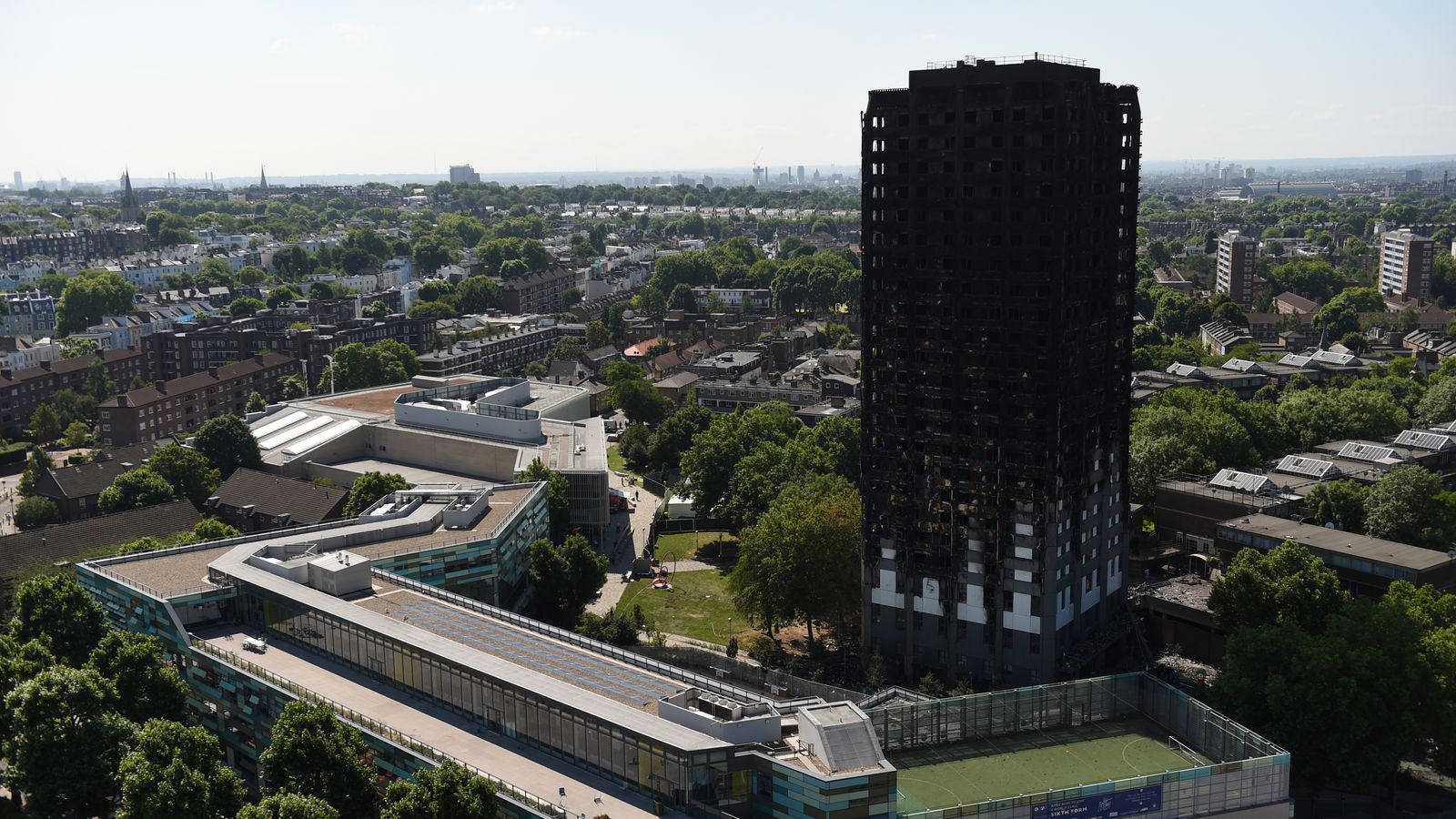“The thing I remember is just people out on the street in pyjamas, crying, some with small children.
“I saw people wandering the corridors with their possessions in bin bags, with no idea where to go.”
These are the images which have stuck with Nathan and Josh, from the night they and their neighbours were forced to leave their homes.
They’re just the latest victims of the post-Grenfell building safety scandal.
In early October, three years after fire safety issues such as wooden cladding were uncovered at Skyline Chambers in Manchester, residents were suddenly handed “prohibition notice” letters from Greater Manchester Fire Service, telling them the risk was now “so serious” that they had to leave.
That made it illegal for anyone to live at Skyline until the building had been made safe – and families were temporarily scattered into hotels across the city.
But campaigners worry that what happened at Skyline Chambers is actually part of a growing trend.
Cladding crisis: ‘No end in sight’ for flat owners still trapped in unsellable homes despite major repair scheme
Grenfell Tower six years on: ‘Frustration over lack of change is turning to anger’
‘The post-Grenfell cladding scandal has left me penniless and about to go bankrupt’
Data by the Building Safety Register shows 38 buildings with an estimated population of 9,600 people living in them have been forcibly evacuated (decanted) since Grenfell for fire or structural issues.
Of these, 15 (nearly 40%) happened in 2023 alone, and BSR founder Matt Hodges-Long fears the numbers will only keep rising.
“It’s because regulatory authorities have reached the end of the rope, waiting for these buildings to be made safe.
“You’re making building owners go and look in more detail at the buildings, maybe taking the external walls off to expose the structure, and once you see something wrong you can’t unsee it.
“So that leads us down a path of evacuating buildings to put them right.
“And that’s why we’re going to see this acceleration of forced evacuations over the coming one, two, three years as this housing stock gets investigated more.”
‘That was my home’
If there are going to be more buildings evacuated, the residents at Skyline want to make sure there are more protections for residents.
When I visited the £15m block on Ludgate Hill I was struck by how much it looked like any other modern high-rise.
The lights were off, but through the windows you could see furniture, plants, and even a towel still hanging out to dry on a balcony; all left by people in a hurry.
There’s also no sign of any building work; despite it being promised that remediation would start in November.
Residents and leaseholders are furious about the delays, and the “patchy” amount of support being offered to them.
While Josh Morris and the 14 other leaseholders who own their own flats will be re-housed until the building is safe, renters like Nathan Jones only have until the new year to find somewhere new to live.
“I feel hurt more than anything that I found out they were going to make over a hundred people homeless two weeks after Christmas, after meetings where they promised to look after everybody,” Nathan tells me.
He fights back tears as he explains how, in the current housing climate, he can’t afford to rent in Manchester anymore:
“That was my home, it had been my home for eight years, I made a life there, and the rent stayed affordable.
“So now I’m faced with another dilemma. After 18 years living in Manchester, with the rents as they are now, I can’t afford it – so I’m having to look outside of the city centre now.
“My friends are here, my job is here, but I have to leave.”
Landlords are struggling too
Other tenants, I’m told, have similarly been forced to leave the city, with one man moving back in with his parents.
But the landlords who rent out their flats are also struggling.
With the termination of tenancies, they fear losing thousands of pounds in rent, while still paying mortgages, increased insurance costs, and service fees they’re still being asked to pay.
Paul Roberts has two flats in the building – he says the loss of rent will cost him £25,000 a year.
He’s desperately worried that some of his fellow landlords won’t survive financially, and angry that Wallace Estates, which owns the freehold of the building, hasn’t promised more support past January.
“It’s not going to be a very good Christmas for many of them,” he says.
Leaseholder-resident Josh thinks there should be rules in place to give everyone in this position proper support and compensation.
He says: “At the end of the day, it’s still someone’s home, and we should all be treated equally.”
He thinks it’s wrong that the government allows prohibition notices to be put in place, with seemingly little follow-through for what should happen next to the people who live there.
“It feels like they’re just making it up as they go along, and that’s causing massive, massive mental health problems for everyone involved.”
Company defends ‘immediate action’
Before the decant, the Department for Levelling Up, Housing and Communities (DLUHC) instigated legal action around Skyline Chambers, and three other buildings in Manchester, to force Wallace Estates to begin remediation. The hearing will take place in March.
A spokesperson for Wallace Estates said it took “immediate action” to relocate all residents when fire safety concerns were discovered recently.
They added: “We are prioritising the remediation of Skyline so residents can return to their homes as soon as the building is safe.
Be the first to get Breaking News
Install the Sky News app for free
“In the meantime, all owner-occupiers have been placed in alternative accommodation until Skyline is remediated, and Wallace has provided accommodation for tenants of Buy-To-Let investors for three months – giving landlords time to liaise with tenants they are responsible for.
“Neither leaseholders nor freeholders are responsible for the existence of fire safety defects at Skyline. The full extent of the negligence of building controllers overseeing the construction of the building has only recently become apparent, and the defects themselves are the result of decisions taken by the original developer.
“It is astonishing that, across the country, leaseholders and freeholders are having to deal with the failings of reckless developers, irresponsible product manufacturers and central and local government who oversaw a deficient safety regime.”
A DLUHC spokesperson said: “Freeholders have a legal duty to ensure the safety of their residents. We have been clear they need to get on with the job of remediation because every day they delay is another day that people can’t get back into their homes.
“Residents and their safety are our utmost priority in any decant and we must ensure they feel supported and have somewhere safe and decent to live while their homes are made safe.”








